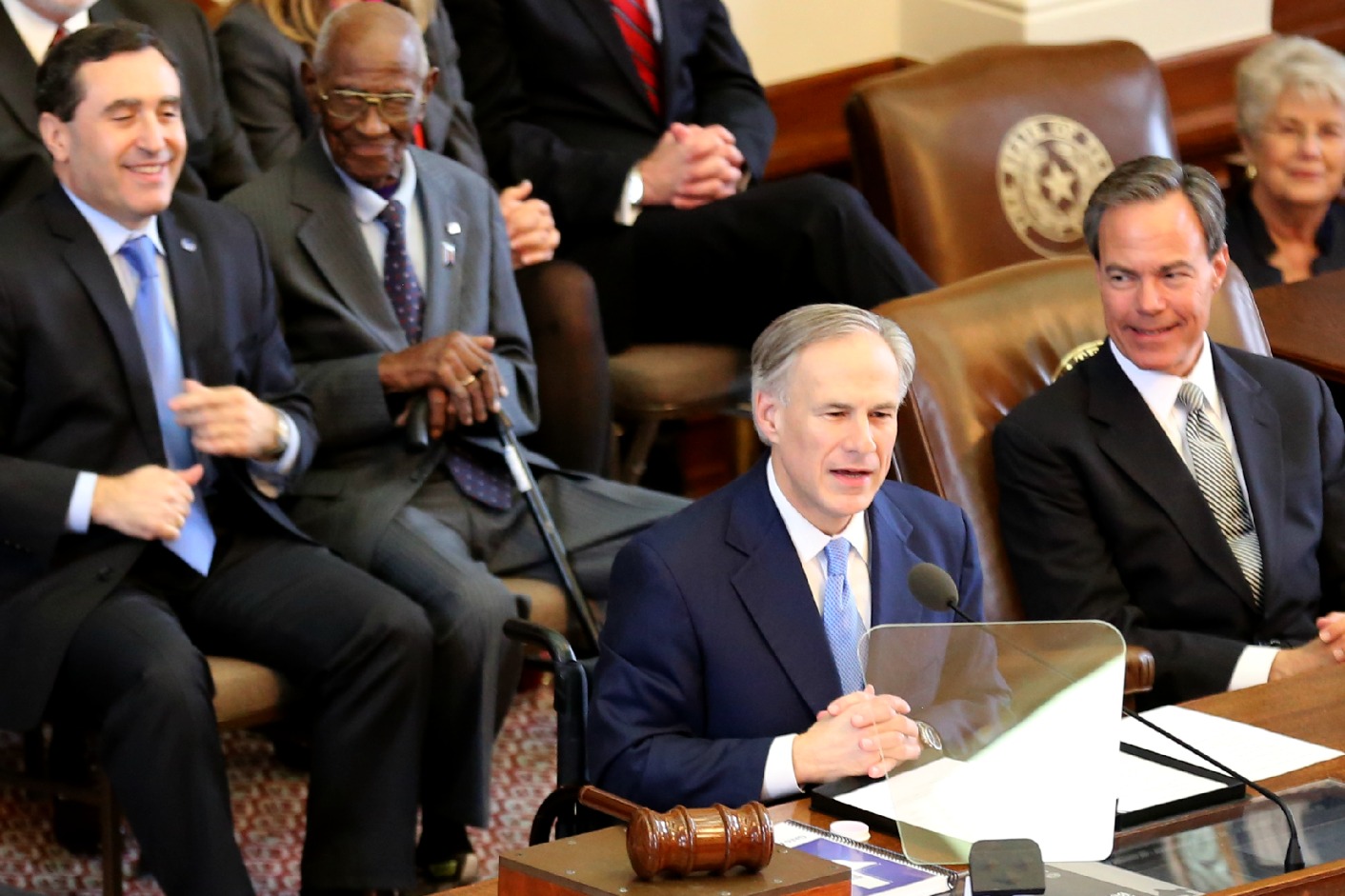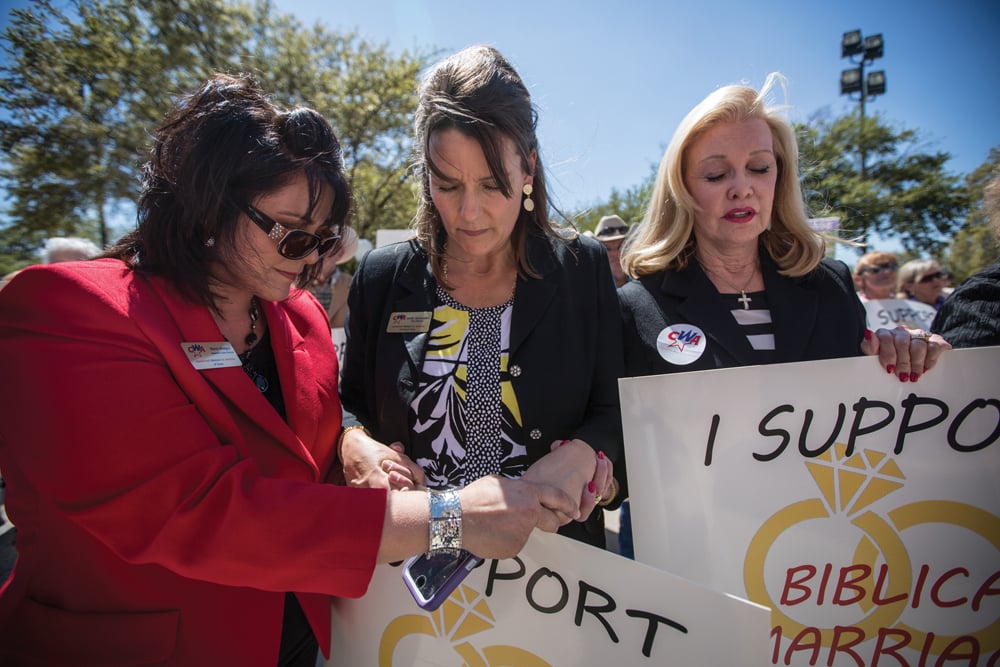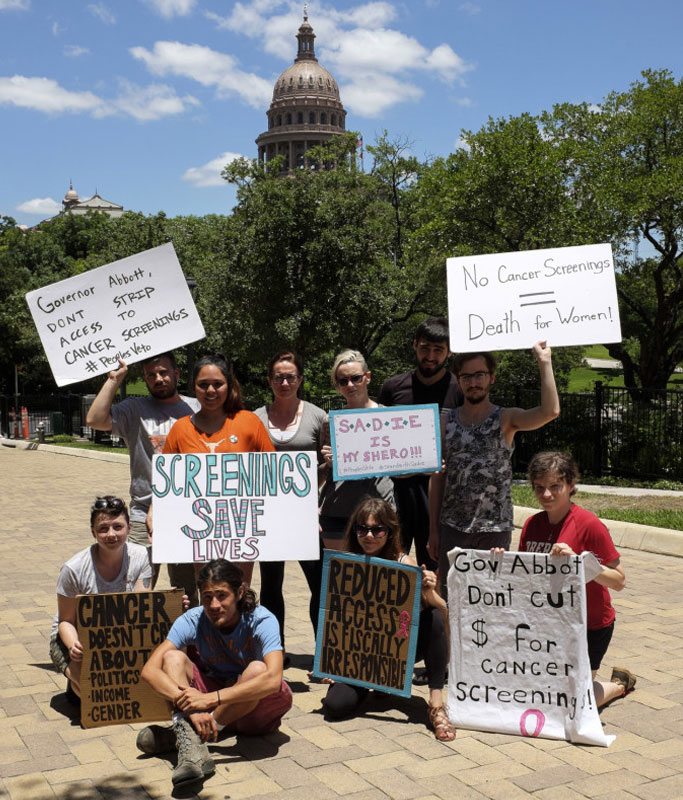
Abbott Serves Up Some Extra-Lean Red Meat on Gay Marriage

Above: Gov. Greg Abbott and House Speaker Joe Straus at the State of the State Address.
Ten years ago, then-Gov. Rick Perry held an unnecessary, ceremonial signing of Texas’ anti-gay marriage amendment at a Fort Worth church.
At 9:30 a.m. Thursday, with the marriage amendment likely to be struck down by the U.S. Supreme Court later this month, Gov. Greg Abbott will stage a ceremonial signing of the so-called “Pastor Protection Act.”
“Governor Greg Abbott will sign legislation to strengthen religious liberties and pastor protections in the state of Texas at the Governor’s Mansion,” reads a Tuesday media advisory from the governor’s office.
When Perry signed the resolution putting the same-sex marriage ban amendment on the ballot, gay marriage was already prohibited by statute. Similarly, the Pastor Protection Act merely reaffirms existing protections under state and federal law—protections for clergy and churches against being forced to participate in weddings that violate their religious beliefs.
Equality Texas withdrew its opposition to the Pastor Protection Act, which had been championed by anti-LGBT groups, after it was narrowed to apply only to wedding ceremonies. And it passed the House 141-2, with support from the two openly LGBT representatives. However, after more than 20 anti-LGBT proposals filed in the 84th Legislature all died, Abbott may feel the need to break off some red meat for the GOP base, however lean.
Some members of that base have demanded that Abbott—who vigorously defended the marriage amendment as attorney general—call a special session to revive a bill aimed at undermining the high court’s likely ruling. But Abbott, apparently realizing the potentially harmful economic consequences, says he doesn’t plan to do so.
House Speaker Joe Straus, in what was a rare public mention of LGBT issues for him, alluded to those consequences Tuesday, when asked by The Texas Tribune‘s Evan Smith about the demise of anti-gay marriage legislation.
“On some of the volatile issues that you mention, the fact that we weren’t jumping headlong into that, and to kind of blow up the session with these very emotionally volatile issues, the fact that we didn’t do that I think is a good thing in terms of the perception of Texas, in terms of our ability to attract talent from out of state and around the word,” Straus said. “We’re out there trying to bring the world’s best scholars to Texas, the best researchers, the best doctors, the best businesses. … I think our record of being thoughtful and deliberate about the most emotional issues was appropriate and a good thing in the long term for our state.”


